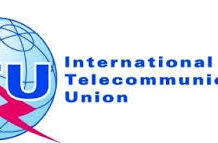Nigeria has recorded an 84 percent decline in spam text messages after Airtel Africa rolled out its AI-powered spam detection platform, Spam Alert, the telecoms operator announced on Thursday.
In a statement, the company said the free service has flagged more than 205 million fraudulent and unsolicited messages across 13 of its African markets over the past six months. Nigeria registered the sharpest reduction, while Kenya logged the highest spam volume with 68 million flagged texts, followed by Tanzania with 47 million and Zambia with 33 million.
Spam Alert works by prefixing suspicious SMS with the label “SPAM Alert,” giving subscribers real-time warnings without requiring additional apps. Airtel said the tool uses more than 250 parameters — including sender identity, link structures, message frequency and regional anomalies — to screen every incoming SMS in under two milliseconds.
“We are proud to pioneer an advanced tech solution powered by AI in tackling spam messages that are a major concern in Africa as smartphone penetration increases,” said Airtel Africa Chief Executive Officer, Sunil Taldar.
The system is currently live in Nigeria, Kenya, Uganda, Zambia, Malawi, Madagascar, Gabon, Congo Brazzaville, Chad, Niger, Rwanda, and the Democratic Republic of Congo, with Seychelles expected to follow. Airtel estimates the tool has contributed to a 12 percent reduction in spam messages continent-wide.
In Nigeria, Airtel disclosed that between March 13 and May 20, the Spam Alert platform intercepted more than 9.6 million suspicious texts. Of these, about 528,000 originated from Airtel subscribers, while over nine million came from other networks.
The Nigerian Communications Commission (NCC) welcomed the innovation, noting that unsolicited bulk messaging and phishing remain among the top five risks to mobile users, particularly in rural areas. “Spam messages and fraud are becoming more sophisticated, and this AI-powered solution provides a much-needed layer of security,” said NCC Executive Vice Chairman, Aminu Maida.
The NCC has urged other operators to adopt similar proactive technologies, citing its 2023 Industry Risk Report that flagged SMS phishing as a growing threat to digital finance and mobile money users.
















